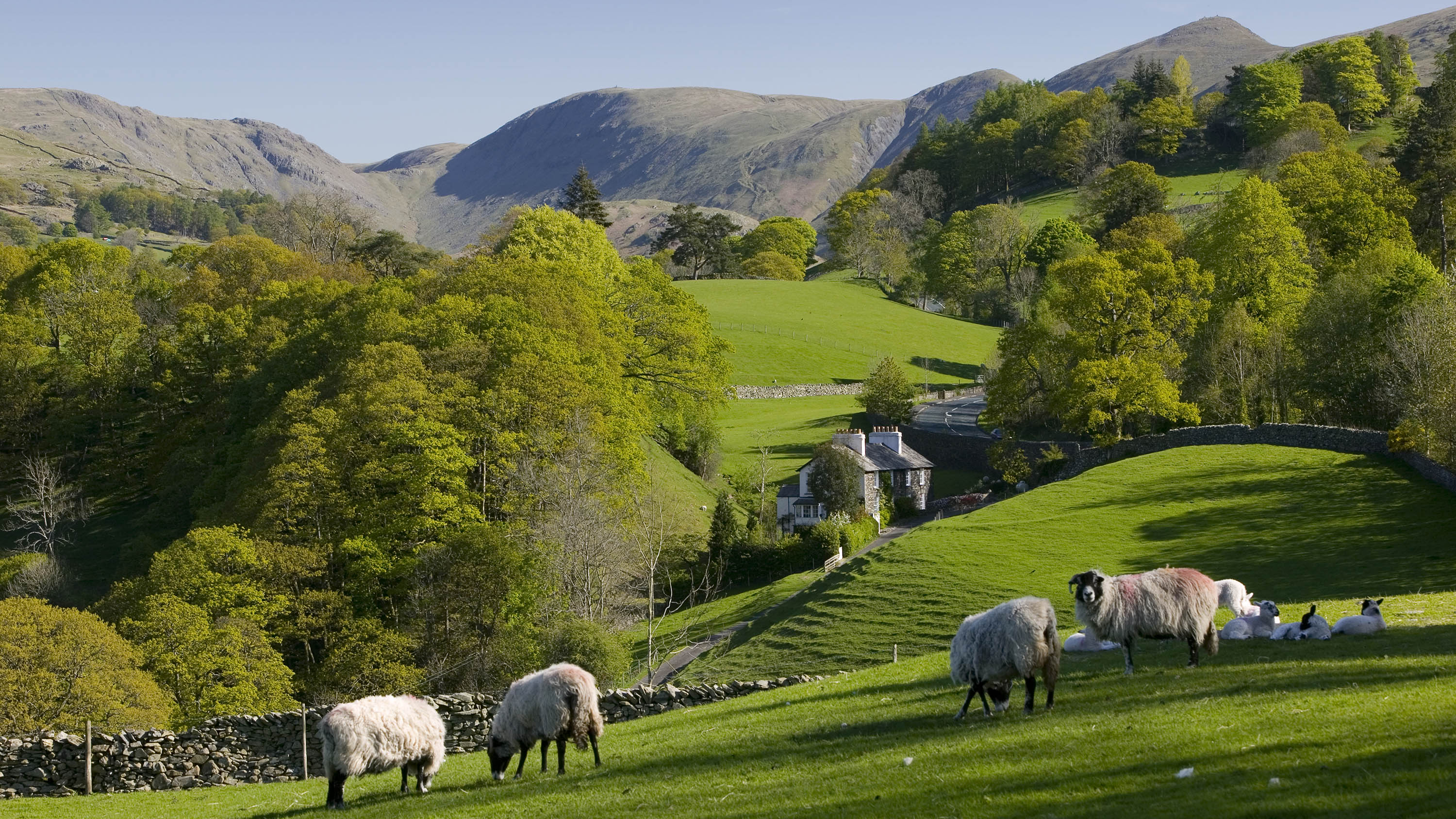'A big opportunity for a small, crowded and beautiful country': Fiona Reynolds on how the Land Use Framework can make Britain better
The Government’s Land Use Framework should be viewed as an opportunity to be smarter with our land, but conflicts need to be resolved along the way says Fiona Reynolds, chair of the Food, Farming and Countryside Commission.


Exquisite houses, the beauty of Nature, and how to get the most from your life, straight to your inbox.
You are now subscribed
Your newsletter sign-up was successful
What is the countryside for? Right now, you’d be forgiven for thinking it’s only there to meet everyone’s needs, everywhere. Growing more food, planting more trees, restoring ‘Nature’, providing access to green spaces, storing water, managing flood risk, reducing the carbon footprint and building houses, new transport links and energy projects, from solar and wind farms to power lines — all these are high on the Government’s agenda.
The need for them all seems overwhelming, especially when there’s no way of working out what should go where, setting priorities or reconciling conflicts.
How land is used in Britain today
• Arable land 38%
• Grassland 29%
• Urban areas 15%
• Peatland 11%
• Woodlands 10.2%
• Trees & orchards (not woodland) 4.7%
• Transport infrastructure 4.2%
• Inland water bodies 1%
• Horticulture less than 1%
• Utilities 0.2%
Figures from the Land Use Framework consultation; there is some overlapping
The problem is land. To coin a phrase, they just ain’t making it any more. When the Land Use Framework was launched, by Defra Secretary Steve Reed on January 31, people in attendance said: ‘Hurrah!’ It’s an idea whose time has come. However, what actually is the idea and how can we make better use of precious land?
The consultation paper proposes important principles: co-design, multi-functionality, playing to the land’s strengths and making long-term decisions that are responsive to change. It is clear that the Government won’t be telling farmers and landowners what to do, but helping them make better informed decisions. The idea is not to try to cram everything in, but to achieve an important end goal: the sustainable use of land. This means the transition to more sustainable farming and new infrastructure in suitable places. Every car-dependent housing estate adds to emissions, but building communities near transport hubs, jobs and services can reduce them.
The consultation is clear that things can’t carry on as they are. Much can be achieved by changing the way land is managed to deliver more benefits, such as restoring soil, promoting wildlife-friendly farming and introducing natural flood-management systems. Defra’s Environmental Land Management schemes (ELMS) are beginning to provide the incentives farmers need to make changes, such as soil restoration and flood-management systems.
More controversially, however, the consultation paper speculates that large areas of the uplands (it suggests 9%) might need to come out of farming to provide space for Nature. This is puzzling, as I don’t know of any Nature-recovery scheme that doesn’t rely on grazing animals and management to deliver its goals. This is still farming, if at the least intense end of the spectrum. Surely it would be better to speak of a farming continuum, with more focus on food at one end and Nature at the other?
The targets of the Land Use Framework
• Protect 30% of the UK’s land and sea for Nature by 2030
• Increase tree cover to 16.5% of England by 2050
• Build 1.5m new homes by 2029
• Achieve carbon net zero by 2050
• Every household to be within 15 minutes’ walk of green/blue space
The most contentious changes will be those that alter land use irreversibly or waste it. Do we need solar farms on agricultural land or should we cover rooftops instead? Are there alternatives to power lines across the countryside (Simon Jenkins, February 19)? Is rail or road infrastructure more sustainable? How can we ensure trees are planted in the right place? A Land Use Framework should help the debate and resolve these questions. What we don’t yet know is what it will look like.
Exquisite houses, the beauty of Nature, and how to get the most from your life, straight to your inbox.
At the Food, Farming and Countryside Commission, we ran pilots in Devon and Cambridgeshire/Peterborough and came up with lessons for success: convening stakeholders and building trust; bringing data and evidence together in innovative ways — we trialled layered (not separate) maps to reveal the cumulative impact of the pressures on land. The Land Use Framework should indeed be a breakthrough in valuing and achieving the best use of land in our small, crowded and beautiful country. It is a big opportunity.
Fiona Reynolds is chair of the Food, Farming and Countryside Commission, the former director-general of the National Trust, former Master of Emmanuel College, Cambridge, and the author of The Fight for Beauty. Follow her on Twitter @fionacreynolds.
